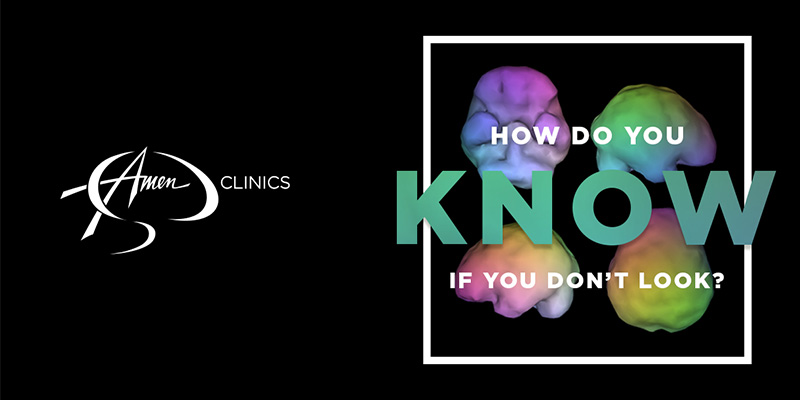
In 1992, Dr. Daniel Amen, our founder, attended an all-day lecture on “Brain SPECT Imaging in Psychiatry.” It was put on by physicians at Creighton University. The experience was amazing to him and the results that were shared mirrored his own early experience with SPECT imaging.
In the 30 years since then, science has repeatedly recognized the value of brain SPECT – the imaging technology we use with our patients at Amen Clinics – for assessing brain function. There is a robust amount of scientific data that support the utility of SPECT for revealing the blood flow patterns underlying many different types of brain problems.
Why SPECT?
Your brain is very delicate – the consistency of soft butter – and is protected by a hard skull with multiple sharp bony ridges. Even minor blows to the head, without loss of consciousness, may result in brain injuries that cause serious consequences for the rest of life.
Traumatic brain injury, or TBI, is the leading cause of death and disability for people between the ages of 1 and 44, and an often-overlooked cause of emotional, thinking, and behavioral problems. People who have experienced TBI have a higher risk of depression, anxiety, suicidality, drug and alcohol abuse, job and marital failure, incarceration, homelessness, and dementia.
At Amen Clinics, we have been using brain SPECT imaging for the past 30 years. One of the first lessons we learned was that undiagnosed brain injuries were a major cause of learning, emotional and behavior problems that were often misdiagnosed as “personality disorders” or people who just didn’t care enough to act right.
We are thrilled to see the progress in this field. We have been using brain SPECT imaging to help understand and treat our patients for the past 25 years, and have published or presented more than 70 scientific studies validating its use.
The results of these studies repeatedly demonstrate the value of brain SPECT imaging for evaluating brain function, clarifying diagnoses, guiding treatment decisions, and measuring the effectiveness of treatment strategies.
SPECT can help with the diagnosis and treatment of a variety of conditions, such as:
• Resistant emotional, behavioral or cognitive issues
• Memory or dementia issues
• Traumatic brain injury/concussions
• Behavioral problems
• Aggression
• Addictions
• Autism
• ADD/ADHD
• Mood Disorders
• Anxiety Disorder
• And more…
Let Us Help You
To see if brain SPECT imaging may be right for you, call us today at 888-288-9834 or visit our website to contact us.





Tks for the article. I also invite you to consider the recent discovery
Radiation from two CT scans could trigger Alzheimer’s, researchers fear
November 2nd 2016 in Alzheimer’s
Radiation from CT (computerised tomography) or CAT scans could be increasing the risk of Alzheimer’s disease. Just having two of the medical tests in a lifetime starts changing our brain molecules, a new research paper has discovered.
A standard dose of ionizing radiation from the scan—which creates a 3-D model of our organs—alters the molecules in the hippocampus, and starts to create patterns that are typical in an Alzheimer’s patient, say researchers from the University of Southern Denmark.
People could probably get away with having just one scan, says lead researcher Stefan Kempf, but he’s concerned about the cumulative effects of having several. Even low radiation doses, equivalent to two CT scans, could trigger molecular changes in the brain that cause cognitive dysfunction, a common symptom of Alzheimer’s disease.
The researchers exposed laboratory mice to doses of radiation that were a thousand times smaller than humans receive in a standard CT scan, and yet it altered molecules in their hippocampus.
People are also exposed to ionizing radiation in airplanes, but levels are far lower than those from CT scans.
Comment by MissT — November 3, 2016 @ 11:01 AM
We experience high volume of orders for MRI of the brain with gadolinium contrast. How does this affect brain molecules.
Comment by Lourdes Cruz — January 30, 2018 @ 3:54 AM
What does 23 ECT treatments do to a 50 yr old patient w very serious depression? Plus 1 MRI of the brain.
Comment by Debbie Myers — January 31, 2018 @ 4:43 AM